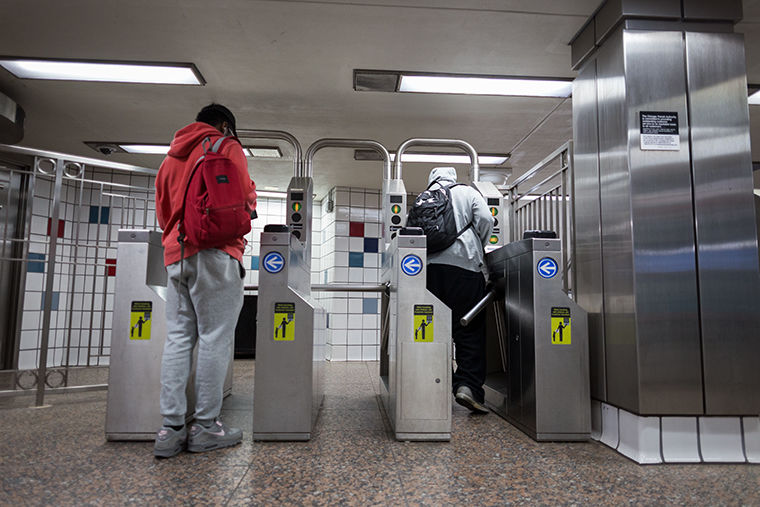CTA raises fares for 2018, cites state budget cuts
December 4, 2017
Chicago Transit Authority will raise fares starting January 2018 for the first time in nine years.
CTA’s 2018 budget lost $33 million in state funding, and as a result, base fares will increase by 25 cents per ride and $5 for the 30-day unlimited ride pass. Card fares will rise to $2.25 for bus riders, $2.50 for train riders and to $105 for a monthly Ventra pass, according to a Nov. 21 CTA press release.
The state funding cut forced the fare increase, said Jon Kaplan, CTA’s media representative, adding that CTA has maintained its current fare levels longer than any other U.S. transit agency.
“[CTA] tried to be as fair and cognizant of people’s budgets as possible [and not cut] services because we know commuters, including college students, rely on our service,” Kaplan said.
Kaplan said the CTA will continue to provide the same level of train and bus service that customers depend on.
“We didn’t want to make any cuts, and we also wanted to continue our modernization of the tracks and stations,” Kaplan said. “Both are important priorities to CTA and to the city.”
But with reduced state funding and competition from ride-share services like Uber and Lyft, CTA had no other choice but to deal with the consequences of a fare increase, said Joe Schwieterman, a transportation professor at DePaul University School of Public Service. It is better than a large budget gap, he added.
Kyle Whitehead, government relations director for Active Transportation Alliance, said without more public investment in the CTA, the rise in fares will only “plug the hole temporarily” and will not be a sustainable solution to the problem. Chicago-area families spend 40 percent or more of their income on housing or transportation in a year, Whitehead added.
“Any increasing cost places an additional burden especially on middle- and lower-income people, students and families,” Whitehead said.
Schwieterman said he predicts CTA will lose about 3–4 percent of ridership following the increase in fares.
“Students will probably be affected more than others because of their heavy use of transit,” Schwieterman said. “For normal commuters, CTA is a real bargain, but for students who make a lot of non-work trips, that adds up. They are more price sensitive to start out with.”
Costs are reduced for holders of a Ventra U-Pass, for which full-time Columbia students pay a $132 per semester required fee and are given unlimited access to CTA services throughout fall and spring semesters. However, the U-Pass is deactivated during J-Term for all students and summer break for all students except those enrolled full-time during the summer semester. Part-time students with fewer than 12 semester credit hours are not eligible for the pass.
Kaplan said CTA negotiates a contract with college institutions like Columbia to determine the price of the U-Pass, which has stayed at $132 per semester for the last four semesters. Kaplan said he does not know if the U-Pass will see an increase next year as well.
Analisa Trofimuk, a senior multimedia journalism major, commutes to downtown from Tinley Park, a south suburb, three times a week using Metra Rail Services but still uses the U-Pass about three times a week.
“College students are already scrapping for money, especially at a private institution,” she said. “We want to save money any way we can. I don’t want to put my change towards a pass that I am already paying for in my tuition.”








